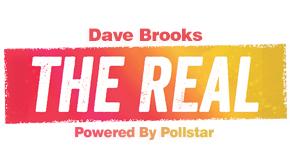Canadian Currency Drop Making Promoters ‘Loonie’

The Canadian dollar – or the loonie, as it’s known for the waterfowl that graces the coin – has dropped steadily since last summer, when it hovered around 90 cents USD. Today, the loonie is trading at an 11-year low of 77 cents USD, dragged down by dropping oil prices and a rising American dollar.
Add in exchange fees, and venues and promoters face losing as much as a third of their buying power. “For us, 95 percent of our artists are American,” said Dean Clarke, regional vice president of Western Canada for Spectra and GM of the South Okanagan Events Centre in Penticton, B.C.
“All of our artists’ fees are in American dollars. When we guarantee a show of $200,000, and our Canadian dollar is only worth 70 cents, we’ve then just increased the cost about 30 percent. That’s a lot for us to take.” The drop in the loonie’s value is the second biggest in 11 years and follows a 2002 dip, which sent the Canadian dollar to a record low of 60 cents on the U.S. dollar.
“I survived that, so I can probably survive this,” said Amy Hersenhoren with Canadian promoter Collective Concerts. “You almost had to pay double on the offers back then. It was atrocious.”
The dollar is a line item that goes up and down, she said, adding that “the real trick to being a promoter in Toronto is being able to survive the volume and the competition. Every night of the week, there’s too many shows.”
Her own office has eight or nine shows a week going on in the city – couple that with shows from Live Nation Canada and Union and “you wonder how we sell well for any of them. There’s only so many people in Toronto who want to see indie rock on any given night.” Indie promoter Jim Cressman with Invictus Entertainment said the falling loonie hasn’t slowed his push into tertiary markets like Abbotsford and Dawson Creek in British Columbia.
“These are the times to get innovative by booking multiple dates in the market or working with festivals and fairs to match up a couple dates and increase the average,” he said. “Anytime you work with someone that you had previously seen as a competitor, there’s a potential for a positive collaboration.”
The result will likely be tighter margins for promoters, higher ticket prices for fans and less money for artists (or scaled back productions, suggested Cressman).
“We can’t expect the artists to come up with all the solutions,” he said. “We need to come up with tangible solutions to weather the storm.”
One idea: bring over American fans. Summer tourism to Canada has hit a five-year high for U.S. visitors and a 15-year peak for Europeans.
That’s good news for destination festivals like Pemberton and Squamish Valley, but promoters might want to start looking outside of Canada to market their shows. The secret to breaking even on big guarantees from U.S. bands might be hooking in enough of their U.S. fans.
 Daily Pulse
Subscribe
Daily Pulse
Subscribe

